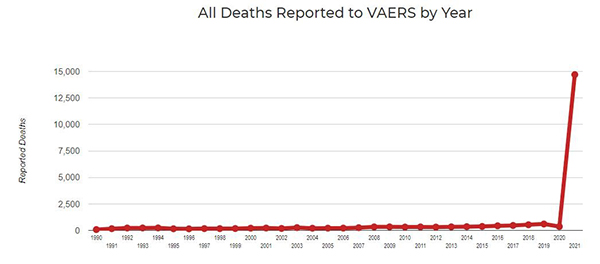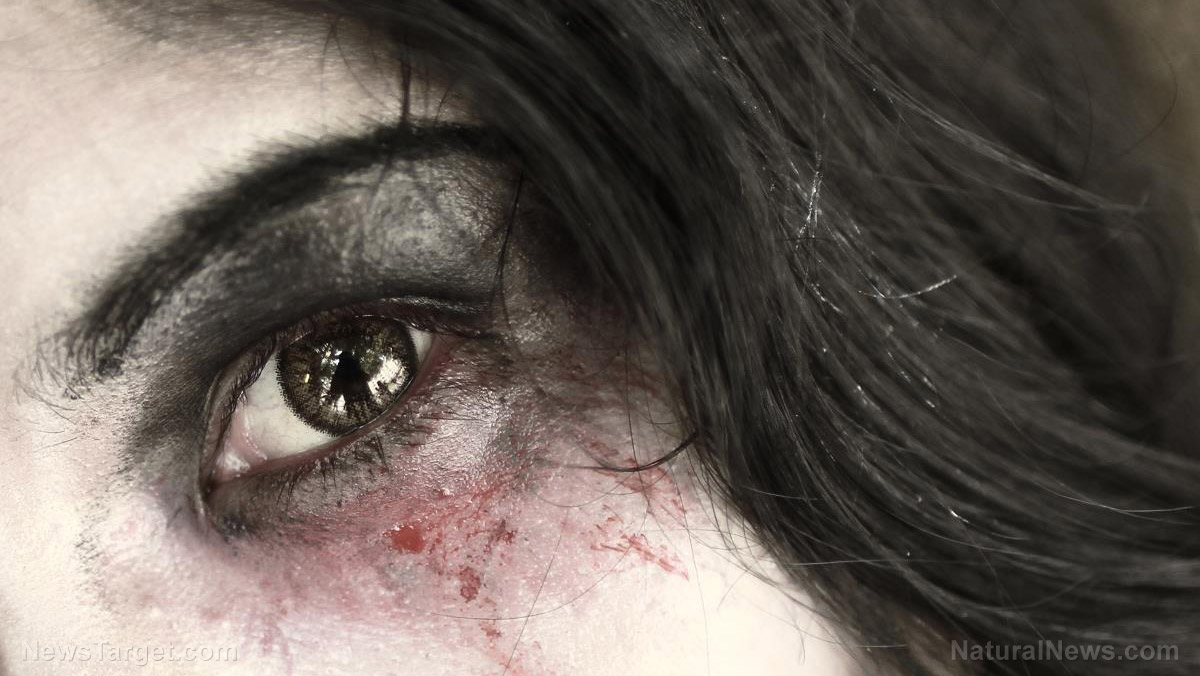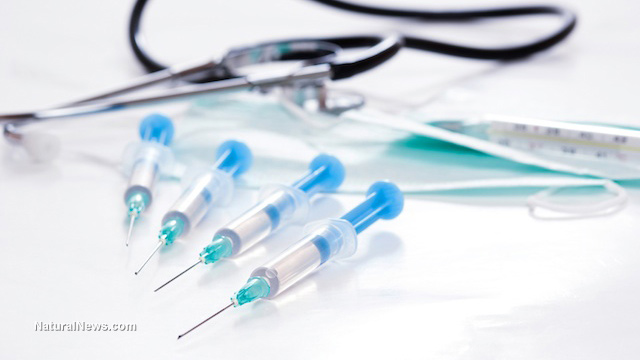Patients left BLIND after using Syfovre, an FDA-approved drug for vision loss
08/07/2023 / By Zoey Sky

In an ironic twist, a drug called Syfovre, which was approved as the “first breakthrough treatment for a leading cause of blindness,” has left several patients without vision. This has raised legitimate concerns over the drug’s safety profile.
Last February, the Food and Drug Administration (FDA) granted approval for Syfovre, a pegcetacoplan injection.
Syfovre can allegedly treat geographic atrophy, an advanced form of dry age-related macular degeneration (dry AMD) that leads to blindness.
Syfovre was initially hailed as a breakthrough in protecting against geographic atrophy, a previously untreatable condition affecting at least one in 100 Americans older than 50. (Related: FDA announces voluntary recall of contaminated eye drops that could blind people.)
In a statement, Dr. Eleonora Lad, lead investigator for the OAKS study, which was sponsored by Apellis Pharmaceuticals, Inc., said the approval of Syfovre is “the most important event in retinal ophthalmology in more than a decade.” Apellis manufactures Syfovre.
But the excitement quickly changed to concern when cases of severe eye inflammation and vision loss emerged following Syfovre’s launch.
The American Society of Retinal Specialists, the world’s largest organization of retina specialists, issued a safety notice after physicians reported several cases of occlusive retinal vasculitis (ORV), a severe and blinding type of inflammation that obstructs the blood flow in the vessels that lead to the retina.
Of the first six reported cases, five patients were left blind in the treated eye. Unfortunately, one woman went completely blind after receiving Syfovre in both her eyes.
There is an eighth suspected case of ORV that caused blindness in the treated eye, but it still hasn’t been confirmed.
Adverse events raise issues about Syfovre’s safety profile
The adverse events were not seen in clinical trials, which raises questions about Syfovre’s safety profile.
In response to the reported ORV cases, Apellis published a press release stating that there was no indication that “drug product or manufacturing issues” had anything to do with the allegedly rare but severe side effect.
Apellis still hasn’t identified a root cause, but the drug maker confirmed at least seven cases of non-occlusive/occlusive retinal vasculitis among the first 68,000 patients treated since Syfovre’s launch in February.
After more than 23,000 clinical trial injections, there were no reported instances of the condition, claimed the drugmaker. Apellis added that no changes were made to the drug formulation between the Phase III clinical trials and the commercial release of the drugs.
According to the prescribing information, common adverse reactions to Syfovre include:
- Conjunctival hemorrhage
- Ocular discomfort
- Neovascular age-related macular degeneration (wet AMD)
- Vitreous floaters
After the report of the severe adverse effect, Apellis released data from an extension study for Syfovre, which includes 30 months of continuous treatment.
The company said the data “reinforces” the long-term efficacy and safety of the drug.
Healthy habits that help boost eye health
Instead of risking your vision with dangerous drugs with adverse side effects like Syfovre, adopt healthy habits and follow a balanced diet.
Support eye health with these good habits:
Get enough essential vitamins and minerals
Vitamins A, C and E, along with the mineral zinc, are antioxidants that can help prevent macular degeneration. This eye condition affects the macula, which is the part of the eye that controls central vision.
Food sources for these important nutrients include various vegetables and fruits, such as:
Foods rich in omega-3 fatty acids, like flaxseed and fatty fish such as salmon, are also good for your eye health.
Eat foods rich in carotenoids
Other nutrients can also help improve your eyesight.
Some of them include lutein and zeaxanthin, which are carotenoids found in the retina. Superfoods like broccoli, eggs, leafy green vegetables and zucchini contain lutein and zeaxanthin.
Alternatively, you can take lutein and zeaxanthin in supplement form. These two carotenoids help protect the macula by improving pigment density in that part of the eye and absorbing ultraviolet and blue light.
Exercise regularly
Staying fit also offers benefits for your eyes.
Type 2 diabetes, which is more common among overweight or obese individuals, can cause damage to the tiny blood vessels in your eyes. This condition is called diabetic retinopathy.
Too much sugar circulating in your bloodstream can injure the delicate walls of your arteries, and diabetic retinopathy can cause the very small arteries in your retina — the light-sensitive back part of the eye — to leak blood and fluid into your eye, which can harm your vision.
Protect yourself from Type 2 diabetes and its many complications by getting your blood sugar levels checked regularly and by exercising regularly to maintain a healthy weight.
Learn more about how to take care of your eyes at EyeHealth.news.
Watch the video below to learn how blue light-blocking glasses can help protect your eyes from harmful blue light.
This video is from the Health Ranger Store channel on Brighteon.com.
More related stories:
Scientists create eye tissue using stem cells and 3D printing.
Study links COVID-19 vaccines to untreatable eyeball clots.
Dr. McCullough says Jamie Foxx contacted him post-COVID jab, urges actor to speak out publicly.
Sources include:
AccessData.FDA.gov[PDF]
Submit a correction >>
Tagged Under:
big government, Big Pharma, blindness, eye health, eye products, FDA, Food and Drug Administration, geographic atrophy, macular degeneration, pegcetacoplan injection, pharmaceutical fraud, Prescription drugs, Syfovre, vision loss
This article may contain statements that reflect the opinion of the author
RECENT NEWS & ARTICLES
ChemicalViolence.com is a fact-based public education website published by Chemical Violence Features, LLC.
All content copyright © 2018 by Chemical Violence Features, LLC.
Contact Us with Tips or Corrections
All trademarks, registered trademarks and servicemarks mentioned on this site are the property of their respective owners.



















